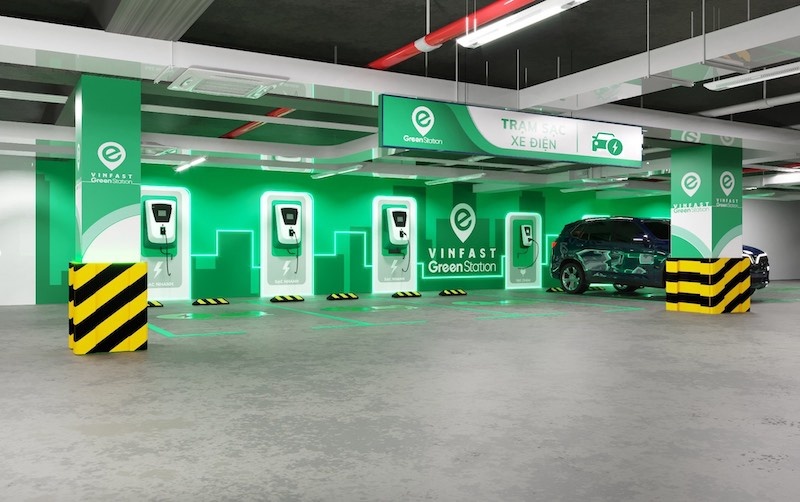Vietnam’s electric car market expected to blossom in 2022
 |
| The local auto industry aims to manufacture about one million electric cars of all types by 2030 |
Last year, VinFast, a Vietnam-based private automotive startup manufacturer belonging to leading conglomerate Vingroup, launched the first made-in-Vietnam electric car model, the VF e34. The introduction of the new model ushered in the transition from cars using internal combustion engines (ICE) to zero-emissions and environmental-friendly electric vehicles in the country.
The brand then continued to showcase new electric vehicles at prestigious exhibitions, including the VF7, VF8, and VF9 models, while proclaiming to cease manufacturing ICE automobiles by the end of 2022. The decision is considered an affirmation of VinFast's ambition for electric cars production.
| The Vietnam Automobile Manufacturers Association proposed a roadmap of the country’s electric car market for the next three years with three development stages. |
Apart from VinFast, other auto brands are also planning the introduction of new electric automobile models to the domestic market in 2022.
Major foreign players such as Mercedes-Benz, Toyota, Volvo, Tesla, and more, have launched or are set to introduce either pure electric or hybrid cars lines to kick off the transition to car electrification in the country.
In addition, foreign-invested firms like Mitsubishi Vietnam and Porsche Vietnam have embarked on establishing battery charging stations to serve the distribution of electric vehicles.
In response to the ever-increasing demand for electric vehicles, the National Assembly and the government have decided to modify excise tax and registration fees for new electric vehicle registrations in the first years in the direction of reduction and exemption.
The excise tax on electric cars with less than nine seats is softened to 3 per cent starting from March 1 and applied within the next five years. In addition, the registration fee for electric cars is exempted for the first three years according to Decree No.10/2022/ND-CP.
Nguyen Van Phuong, CEO of the brand and communication academy SAGE, emphasised that this year marks an important turning point for the domestic electric car market in terms of government policies, production strategies, distributions, customer services, and purchasing behaviour.
"Vietnam has a young population with a strong interest in high technology. This is such a high potential market; once it can overcome cost-related limitations, those manufacturers focusing on electric instead of fuel-burning cars enhance comfort for users”, Phuong said.
The Vietnam Automobile Manufacturers Association proposed a roadmap of the country’s electric car market for the next three years with three development stages.
Along with this, by 2030, the local auto industry aims to manufacture about one million cars of all types. Between 2030-2040, the number of electric vehicles would increase significantly to reach a production capacity of 3.5 million vehicles by 2040.
From 2040 to 2050, the auto industry is expected to see steady development to hit a production capacity of around 4.5 million vehicles by 2050 before reaching saturation when electric cars make up almost all of the transactions.
What the stars mean:
★ Poor ★ ★ Promising ★★★ Good ★★★★ Very good ★★★★★ Exceptional
Related Contents
Latest News
More News
- Temporary relief for food imports as businesses urge overhaul of regulations (February 07, 2026 | 09:00)
- Opella and Long Chau join forces to enhance digestive and bone health (February 06, 2026 | 18:00)
- Vietnam-South Africa strategic partnership boosts business links (February 06, 2026 | 13:28)
- Sun PhuQuoc Airways secures AJW Group support for fleet operations (February 06, 2026 | 13:23)
- Pegasus Tech Ventures steps up Vietnam focus (February 05, 2026 | 17:25)
- The generics industry: unlocking new growth drivers (February 04, 2026 | 17:39)
- Vietnam ready to increase purchases of US goods (February 04, 2026 | 15:55)
- Steel industry faces challenges in 2026 (February 03, 2026 | 17:20)
- State corporations poised to drive 2026 growth (February 03, 2026 | 13:58)
- Why high-tech talent will define Vietnam’s growth (February 02, 2026 | 10:47)

 Tag:
Tag:

























 Mobile Version
Mobile Version